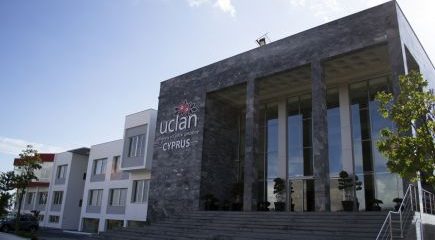TESOL Team
“L2 Acquisition in a Bi-X Linguistic Setting”
Dr Lena Papadopoulou
Monday 24 February 2014, 11:30-13:30
Acquiring a second language has become a ‘norm’ in the 21st century. Despite this growing tendency a debate still holds on whether children and/or adults have partial or full access (among other accounts) to UG when acquiring a second language. Description of L2 acquisition in a Bi-x linguistic setting, such as Cyprus, could provide evidence for one of the accounts proposed (Karpava, submitted).
Cyprus, since its declaration of independence in 1960 has two official languages, Greek and Turkish (Article 3, constitution of 1960). Following Article 3 (constitution of 1960) Cyprus should have been by law a ‘bilingual’ republic with its inhabitants being native speakers of both (L1/L2) Greek and (L2/L1) Turkish. However, the linguistic reality of the island differs greatly from what is suggested by its constitution. Many scholars (Arvaniti, 2006a, 2006b; Rowe and Grohmann, under review, among others) have tried to describe the linguistic environment of the island and the status of the varieties/languages spoken on the island. These attempts ‘failed’ since not all scholars agree (d) on a commonly defined term which could effectively describe both the Cypriot society and its speakers; varying from bilingualism (Newton, 1972, Vasiliou, 1995) to bidialectalism (Pavlou and Christodoulou, 2001; Papapavlou and Pavlou, 1998), different definitions of diglossia (Arvaniti, 2006b, 2010; Terkourafi, 2007) with or without Standard with Dialect (SwD) continuum (Karyolemou, 2001, 2006) or even discrete bilectalism (Rowe and Grohmann, under review).
This presentation will initially provide a description of the ongoing research on the acquisition of Cypriot Greek (CG) and will address some of the questions such research poses on L2 acquisition theories. An attempt will be put forward to describe in detail the Cypriot linguistic environment proclaiming possible effects on L2 acquisition.
Elena Papadopoulou received her BA in English Language and Linguistics in 2005 and has recently received her PhD in Linguistics from the University of Essex. She has worked closely with Dr. Kleanthes K. Grohmann on a number of research projects (COST A33, GenCHILD, CySLI) and has been the Cyprus Acquisition Team Lab Coordinator since 2010 (CAT http://www.research.biolinguistics.eu/CAT/index.html). She has published in several book volumes and journals with many CAT members and has taught at University of Essex and University of Cyprus. She is now teaching at the European University of Cyprus as well as maintaining her role as the CAT Lab Coordinator.
Elena has been an editor of the Essex Graduate Student Papers in Linguistics and an elected member of the Linguistic Association of Great Britain (LAGB) Student Committee. She has also been a member of the Psycholinguistic Group at the University of Essex for four years, investigating language acquisition and developmental or acquired disorders, using both on-line and off-line experimental techniques.
Her interests extend to theoretical applications of syntax, as well as the study of L1 and L2 acquisition by both typically developing and language impaired populations and the biolinguistic attributions to language acquisition.



